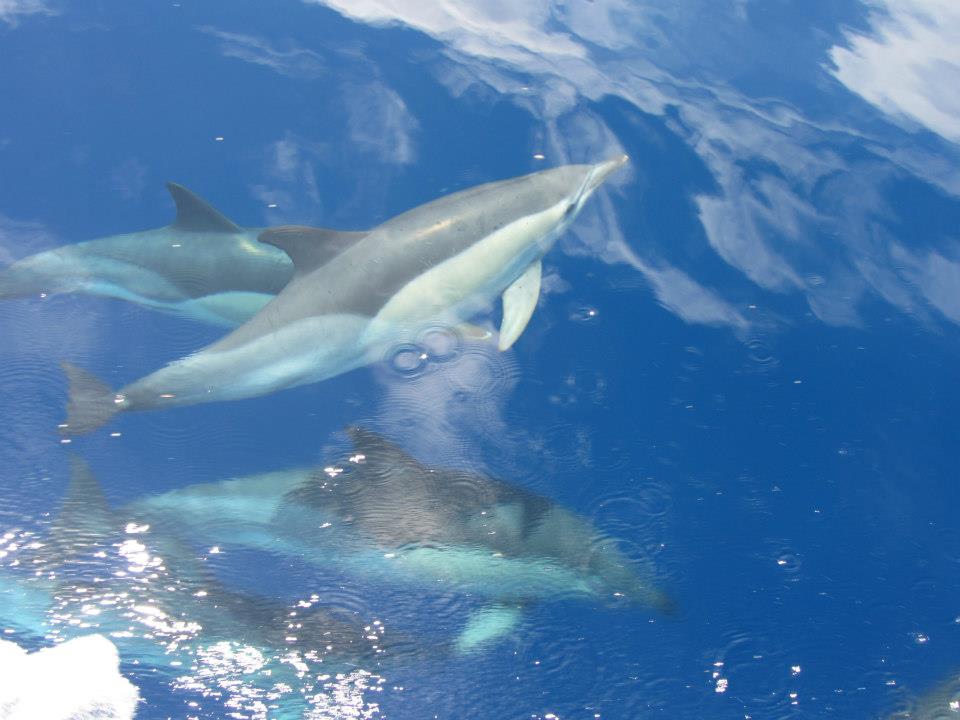
CEBU, Philippines – In his address to the participants of the Tañon Strait Protected Seascape Stakeholders’ Summit in Cebu City yesterday, Dumanjug town Mayor Nelson Gamaliel Garcia said that “dolphins, whales, sharks are parasites,” and that some of them should be exterminated.
Although the summit was meant as a platform to discuss the restoration and continued protection of the Strait – which is the Philippines’ largest marine reserve – the mayor made the suggestion to kill off some of the “parasites” because these marine species are allegedly causing the fishing yield to significantly drop.
The mayor stressed that these species, because of their uncontrolled numbers, are competing with people in terms of food; and as such, the population of dolphins, whales, and sharks in the Strait should be kept in check by killing some of them off.
“Imbis ang para sa tawo unta maadto na nila. Di hutdon but kontrolon lang. Kay kung di nimo ma-control ning mga dolphins, shark, and whales, wa nay mahabilin, gagmay na lang ang sa atoa,” he said.
(Instead of [the fish] going to the people, it goes to them [whales, dolphins, sharks.] Not to wipe them out, just control them. Because if we cannot control these dolphins, shark, and whales, we will have nothing left, just a small amount [of fish] will be left for people.)
“Sa Japan ila man gipamatay ang whales kay naghatag man og low nga catch sa fishermen. Naa gyod silay whale hunters,” he added.
(In Japan, they kill the whales because they cause fisherman to have a low catch. They really have whale catchers.)
The mayor made these remarks, amidst growing efforts worldwide towards the protection of such marine animals, on account of their dwindling numbers.
Mayor Garcia, however, asserts a different point of view: “In fact, the whale is increasing because nobody is catching them.”
“Parasites gyod na sila [dolphins, whales, and sharks] sa dagat. Moingon kintahay ta nga nindot kaayo kay daghang whales, unya ang mga tawo wa nay gikaon kay gihurot na ang mga isda,” he said.
(They [dolphins, whales, and sharks] are now parasites in the oceans. You suppose that it is very nice that there are many whales, and then it is the people who are left with nothing to eat because they [whales] are finishing the fish.)
Meanwhile, despite the views expressed by Garcia, lawyer Gloria Ramos, vice president of Oceana in the Philippines, said that their group is committed to the protection of the Tañon Strait.
“We are determined. We are willing to take it a day at a time,” Ramos said.
She vocalized, however, that there is indeed a threat to the fishing community: “The fisherfolks don’t have their fish anymore; not just the fisherfolks, it will also affect the rest of us. It is a food security issue.”
Oceana is an international marine conservation organization. The group organized the Tañon Strait Protected Seascape Stakeholders’ Summit.
Meanwhile, Department of Environment and Natural Resources (DENR)-7 Regional Executive Director Isabelo Montejo said that the local government is exerting every effort to find a balance between environmental protection and economic issues.
“While we are doing our best in terms of conserving and protecting our environment, and yet some government sectors are also saying that we need to have economic development to propel the economic activities in the area,” Montejo said.
“We will harmonize this and come up with a balanced (assessment) between economic development and environmental protection,” he added.